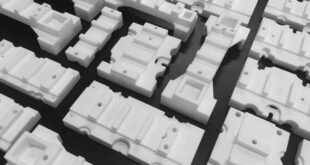Dave Friar explains why working closely with local engineers when managing construction and commissioning of international facilities can lessen the headache
Managing international commissions can be a minefield of differing standards, cultural expectations and languages.
However, if you engage with local engineers as early as possible and work closely with them to share knowledge you’ll find that things run a lot smoother.
Knowledge sharing
The most obvious benefit from employing local engineers is gaining their insight and knowledge.
Not only can they help you navigate cultural expectations of local organisations and potential future employees at the site, they can also support you in selecting the right local suppliers.
In addition, they will obviously speak the local language. This is a great help as it means you don’t have to staff your own teams with an array of translators.
Local staff can also support you in translating necessary forms or induction documents.
Maintaining your standards
It’s important that you invest time in the local team you put together to train them to work to your expectations.
For instance, at Boulting we train all engineers we work with around the world to maintain British standards, such as electrical installation standard BS 7671, as well as various health and safety standards.
Not only does this make sure your facility is built to the highest standard, and in keeping with any other facility you have around the world, you’re also building a base of local support for the future.
No matter how well the initial commission, development and deployment goes, you can’t predict what may go wrong in the future.
Should something break down or require servicing further down the line you know there is reliable, local support. For example, we hold familiarisation training with our client’s competent engineers, so that they fully understand the functionality and any unique features or requirements of our equipment installed.
Giving back to the global community
Investing time to train engineers in all these different aspects of working on a UK-led project builds the skills base in that region, contributing to closing the international engineering skills gap.
Knowledge sharing is vital to proliferate best practice and advanced learning, particularly in developing parts of the world that are growing their standing on the international engineering stage.
At Boulting, one of our health and safety advisors runs a course for competent engineers that grants them a Boulting certification in best workplace safety practice.
This is something that these individuals can use to gain further employment on higher profile projects, supporting local employment and the regional economy.
According to Odi.org, sub-Saharan Africa’s manufacturing sector has grown over the last decade, seeing increased production, employment, trade and foreign direct investment (FDI).
Much of this FDI is from developed countries, such as the UK and America, which see the potential in the African market. In regions like this, being able to prove that they can work to UK standards will help engineers find more work.
Something that both benefits the region and the international manufacturing sector.
So, as you can see, finding local engineers can be a massive benefit to your international projects as well as building an engineering presence you can rely on, where ever you are in the world.
Dave Friar is operations director at engineering solutions provider, Boulting Ltd.
 Engineer News Network The ultimate online news and information resource for today’s engineer
Engineer News Network The ultimate online news and information resource for today’s engineer
